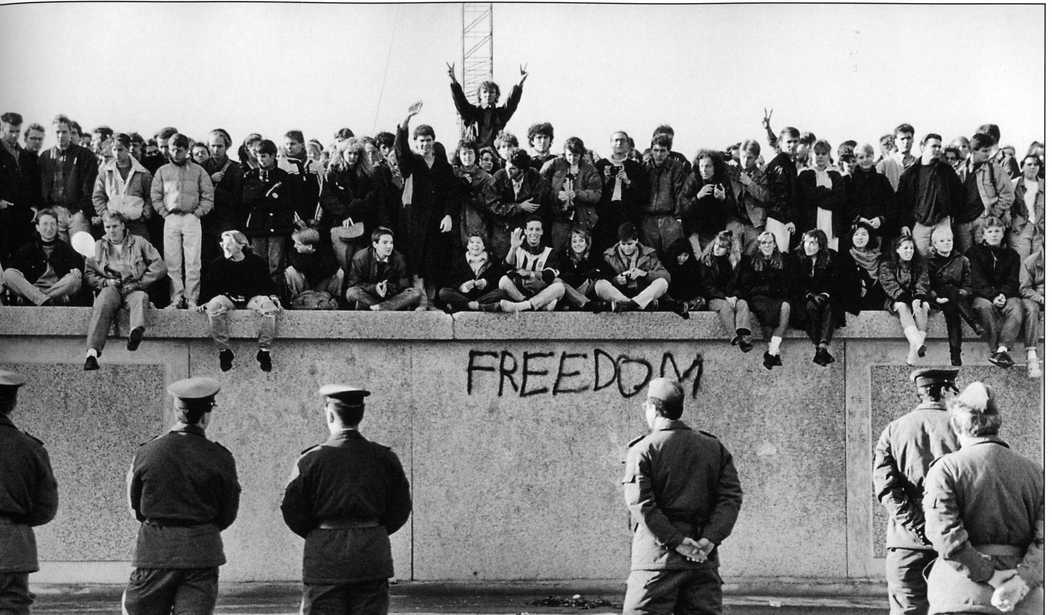It was supposed to be “The End of History,” an inflection point of unsurpassed importance, a hinge that opened a door to a new world.
The fall of the Berlin Wall on November 9, 1989, was an extraordinary moment. Those of us who grew up with the reality of a divided world could hardly believe the images we were seeing on TV. The commentary from reporters was disbelieving. I wondered at the time if they would react any differently if they were describing an alien visitation.
It’s always uplifting to see hope from people who previously had none. Just like it’s always sad when reality sets in and that hope turns to cynicism.
According to the latest Deutschlandtrend report by political research firm Infratest Dimap, a majority of respondents in both western and eastern Germany said that reunification has brought personal advantages, although the results also indicate a negative shift in the east.
Some 60% of eastern Germans said there has been a positive change — a figure that dropped by 7% compared to responses ten years ago when the country was celebrating the 20th anniversary of the fall of the wall.
Positive responses from western Germans, on the other hand rose by five points up to 56% compared to answers from 2009.
As a measure of just how screwed up East Germany became under communism, it’s been 30 years and the standard of living in the East is still behind that in the West.
The process of reunification was undoubtedly difficult and costly, but when it comes to changes in life satisfaction, Germany outperforms most other countries, including those in Eastern Europe. According to an August 2019 survey by the Pew Research Center, life satisfaction rose to 64% in western Germany in 2019, up from 52% in 1991, while in eastern Germany, it rose to 59% from 15% over the same time period.
This trend was recorded across the board, including in attitudes to democracy, human rights and multiparty political systems. This happened despite the lasting influence of the socialist past — with support for the Alternative for Germany twice as high in eastern regions as in western regions (24% vs. 12%).
And the rest of Europe is mired in its own social and economic problems.
Thirty years after the fall of the Berlin Wall, it’s common to have pessimistic views. Europe is divided, populists are on the march, there is an influx of migrants, the European project is tearing at the seams, relations with the U.S. are terrible and with Russia they’re even worse, Ostalgia (nostalgia for life in Communist Germany) is growing…
So what happened? It’s not easy to be free. You have to work at it or you lose it. The East Germans, used to having the state tell them what to do and how to live, found that being responsible for your own life and the lives of your family was not all it was cracked up to be. Many are finding — as they are finding in Russia — that they actually want the state to make decisions for them.
So the former East German people are dissatisfied and can’t reconcile their desire to be “free” and their need to be taken care of.
But what about those born after the wall fell?
The study found that only 33 percent of young Germans in former eastern states agree that it makes no difference whether someone comes from eastern or western Germany, compared with 57 percent in the West who say the same.
“People in the East perceive Germany as less fair,” Faus said. “They believe that people in the East were not always treated in a fair manner after the fall of the wall.”
And those who agree that the East has been disadvantaged are more likely to vote for the AfD, he said.
Another notable finding: 1 in 5 people surveyed in the former East Germany said they feel more “East German” than “German.” There’s no equivalent regional identity in the West, Faus said.
It’s “only” been 30 years — a heartbeat looking at the history of Europe. In other former Iron Curtain countries, there is more overall satisfaction with freedom, but old hatreds have been re-emerging. Anti-Semitism is a rising tide in Eastern Europe with little effort to change. It would seem that the “end of history” means that, in many ways, history must repeat itself.










Join the conversation as a VIP Member